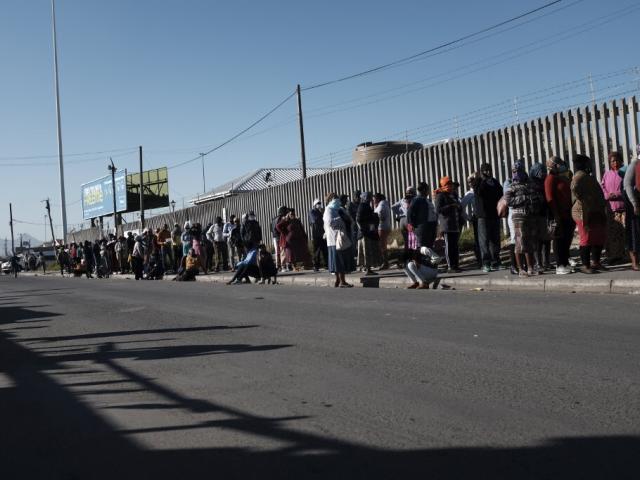IN SHORT: A claim that a new R999 grant has been introduced in South Africa is false. There is only a campaign for the grant, but it has not been introduced by any government agencies.
Social media posts circulating on Twitter and Facebook claim that the South African Social Security Agency (Sassa) has introduced a new grant.
The accompanying link takes readers to an article on a basic-looking website claiming to be for “Nsfas applications”.
The National Student Financial Aid Scheme, or Nsfas, is a South African government programme that provides financial aid to eligible students at higher education institutions.
Sassa is responsible for the distribution of grants to vulnerable and poor people in South Africa on a monthly basis.
The headline of the article on the Nsfas website reads “Finally New Grant of R999 for Basic Income Introduced” and includes a graphic, just underneath the heading, which features the same text and Sassa’s logo.
However, the body of the article does not mention any specific details about the introduction of the “new grant” or Sassa’s role. Rather it claims that South African political party the Good Party has proposed a R999 basic income grant.
Some social media users appeared to read only the headline of the article, and assumed the grant had been introduced by the ruling African National Congress (ANC).
One tweeted: “#ANC buying 2024 Elections with R999 grant for unemployed individuals aged 18-60 years. Wonder how long will it be sustainable, no wonder HNWI are moving their money out of SA like crazy. South Africans are about to experience unprecedented Tax rate hikes.”
A member of opposition party Economic Freedom Fighters (EFF) was also disgruntled, writing: “Good party is now given the spotlight but we're the first party to talk about the introduction of basic income grant for the unemployed.”
The same article has been posted on other websites. But is Sassa distributing a new social grant? Or is this still only a proposal made by the Good party? We checked.

Good party’s #BasicIncomeGrant campaign
The Good party announced their launch of a campaign for a basic income grant in June 2023. Good is proposing that a R999 grant be made available to unemployed people between the ages of 18 and 60.
The campaign can be seen across the party’s social media pages: “The #GOODdeal is a #BasicIncomeGrant of R999 per month. If you are looking for a job and don't qualify for other grants, this is what you need. To pay for your food and basic needs. To keep you going, and uphold your dignity. IT CAN BE DONE!”
It is one of the party’s campaign pillars in the build-up to the country’s 2024 general elections, Brett Herron told CapeTalk, a commercial radio station based in Cape Town, South Africa. Herron is a member of parliament for and secretary general of the Good party.
South Africa holds national and provincial elections every five years.
But this basic income grant is not yet available – it is a proposal made by an opposition party. And Sassa is not administering or distributing it.
Someone asked Sassa about the article with the misleading headline circulating on social media and Sassa tweeted in response: “That information is false and does not come from SASSA. Please lookout for any other fake news and scam alerts on our official pages.”
That information is false and does not come from SASSA. Please lookout for any other fake news and scam alerts on our official pages.
— SASSA (@OfficialSASSA) July 12, 2023
Both the headline and graphic in the article are misleading.
Website has a few red flags
Africa Check has fact-checked many false claims and scams doing the rounds on social media about Sassa grants. This website, claiming to be for Nsfas applications, has many of the red flags we’ve seen before.
The first is that the link uses the name of an existing government programme but takes users to an unofficial-looking and unverified website. It also has many pop-up adverts, another red flag for an unverified website.
The website claims to belong to Nsfas but the official site for the government-run scheme can be found here.
For tips and tricks to verifying online scams, read our guide to Facebook scams and how to spot them.
Republish our content for free
For publishers: what to do if your post is rated false
A fact-checker has rated your Facebook or Instagram post as “false”, “altered”, “partly false” or “missing context”. This could have serious consequences. What do you do?
Click on our guide for the steps you should follow.
Publishers guideAfrica Check teams up with Facebook
Africa Check is a partner in Meta's third-party fact-checking programme to help stop the spread of false information on social media.
The content we rate as “false” will be downgraded on Facebook and Instagram. This means fewer people will see it.
You can also help identify false information on Facebook. This guide explains how.




Add new comment